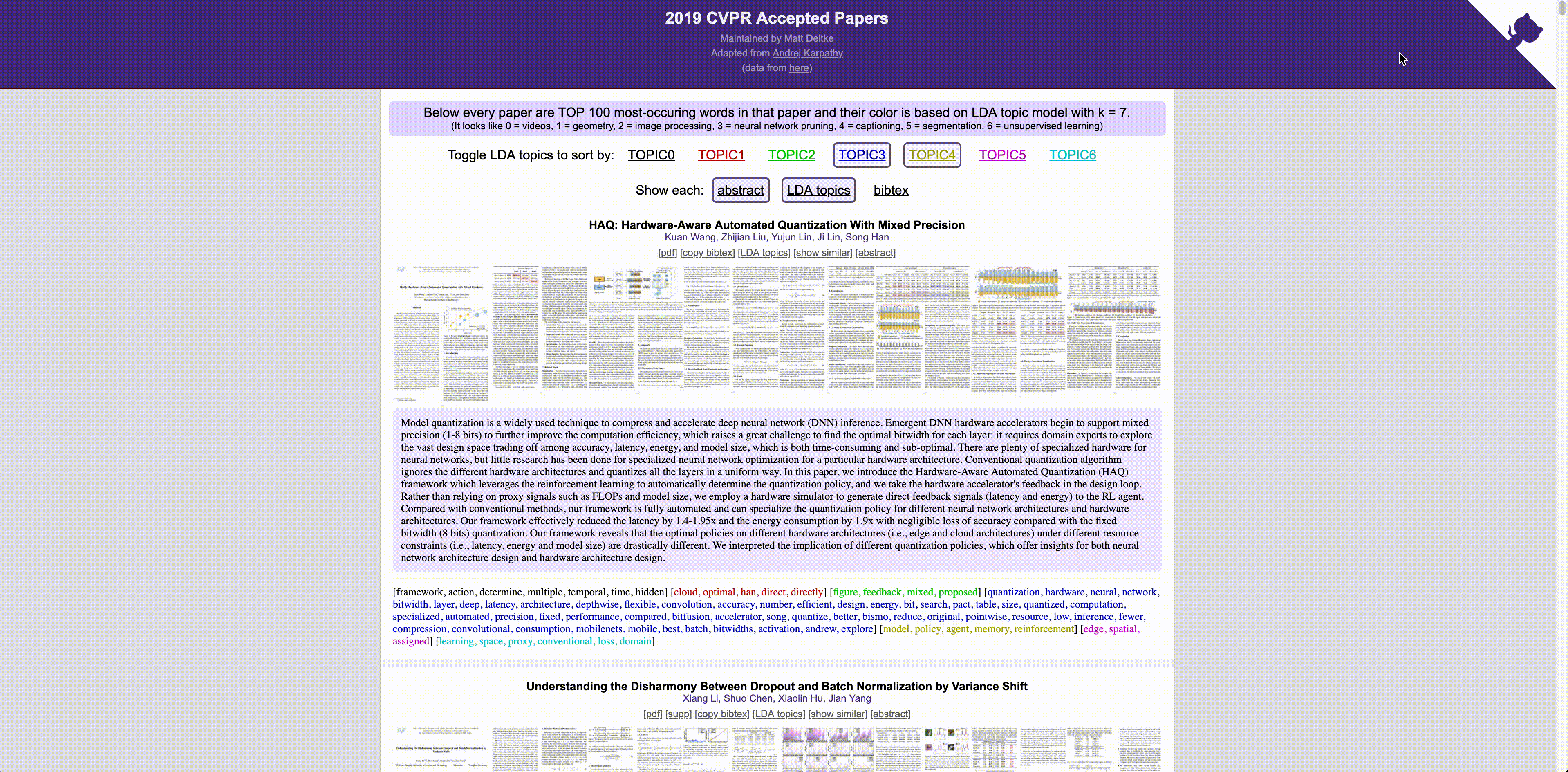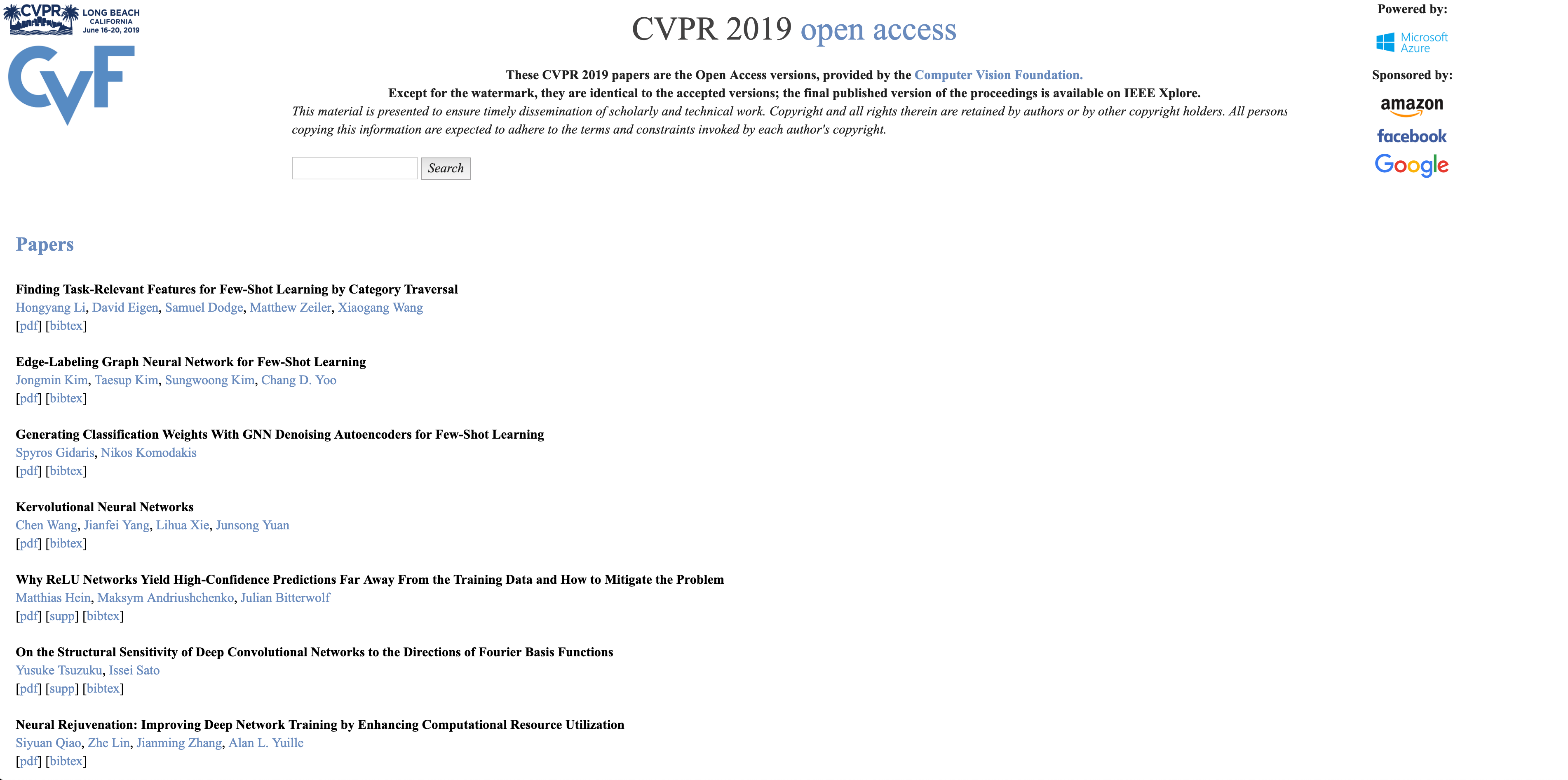mattdeitke / Cvpr2019
Programming Languages
Projects that are alternatives of or similar to Cvpr2019
Updated repository at https://github.com/mattdeitke/CVPR-Accepted-Papers-Viewer
CVPR 2019 Accepted Papers
The main goal of these scripts is to build a page that displays the accepted papers for CVPR 2019 in a way that is easier for humans to parse (see: https://mattdeitke.com/CVPR-2019). Below is an example of what this repository will display, and following that is what CVPR open access currently shows.
 In particular, there is functionality to cluster papers based on latent Dirichlet allocation topics, create thumbnail images from the first 8 pages of each PDF, find the abstracts, copy a BibTeX, view the paper and supplementary material, and more. The scripts use Python 3.7 and should work for any past and future CVPR conference (unless they change how they display the pages). Modifications can be made to adapt the format to another conference.
In particular, there is functionality to cluster papers based on latent Dirichlet allocation topics, create thumbnail images from the first 8 pages of each PDF, find the abstracts, copy a BibTeX, view the paper and supplementary material, and more. The scripts use Python 3.7 and should work for any past and future CVPR conference (unless they change how they display the pages). Modifications can be made to adapt the format to another conference.
Installation
-
Clone this repository
git clone https://github.com/mattdeitke/CVPR2019 -
Save the HTML from where the accepted papers are displayed. For CVPR, this year, that would be
http://openaccess.thecvf.com/CVPR2019.py. -
Install ImageMagick, which can be done using
sudo apt-get install imagemagickor using another supported method such asbrew install imagemagick. -
Run
pdftowordcloud.pyto generate top words for each paper. The output is saved in topwords.p. -
Run
pdftothumbs.pyto generate tiny thumbnails for all papers. The outputs are saved in thumbs/ folder. -
Run
scrape.pyto generate each paperid, title, authors list by scraping the cvpr2019oar.html page. -
Run
makecorpus.pyto create allpapers.txt file that has all papers (one per row). -
Run
python lda.py -f allpapers.txt -k 7 --alpha=0.5 --beta=0.5 -i 100. This will generate a pickle file calledldaphi.pthat contains the LDA word distribution matrix. Thanks to this nice LDA code by @shuyo! It requires nltk library and numpy. In this example we are using 7 categories. You would need to change thecvprnice_template.htmlfile a bit if you wanted to try different number of categories. -
Generate the abstract files inside abstracts/ folder using
getabstracts.py. -
Finally, run
generatenicelda.pyto create theindex.htmlpage.
Acknowledgements
Big thanks to @karpathy for his NeurIPS preview and ArXiV Sanity Preserver, which is what this repository builds on! Also a thanks to @tholman for creating a more modern GitHub Corners and @shuyo for the LDA code! Finally, more thanks go to the people at CVPR for openly publishing all of their accepted papers!
Licence
MIT License

